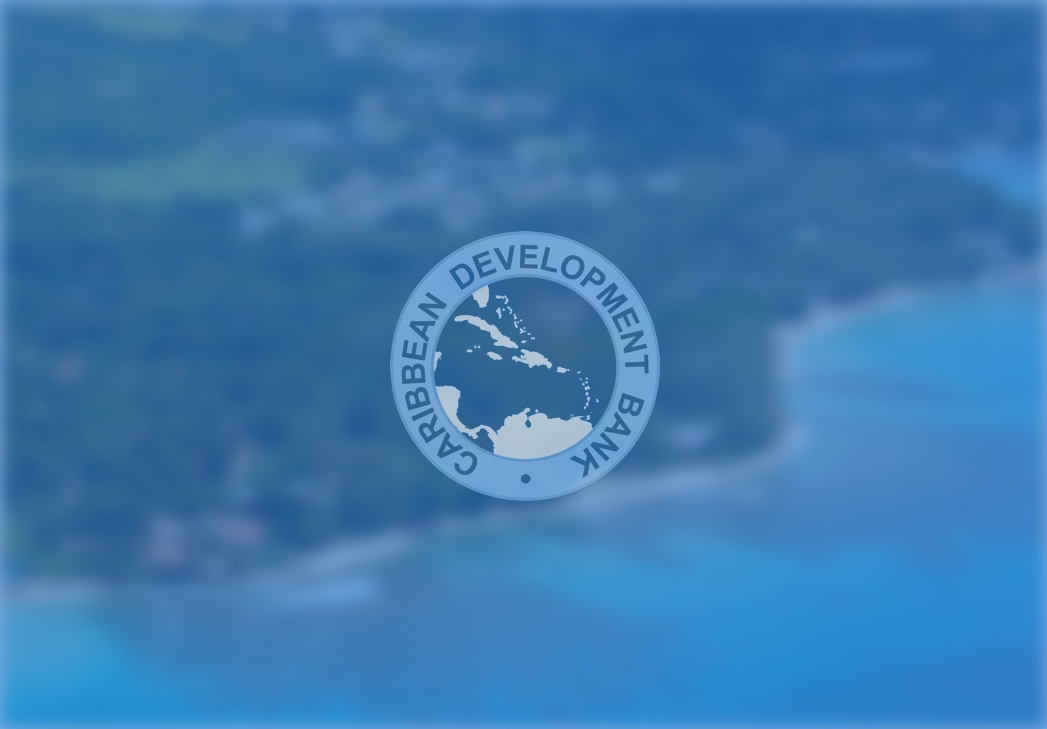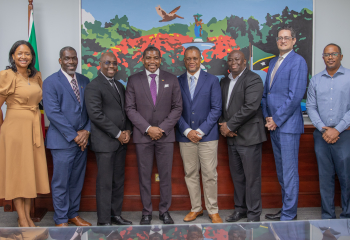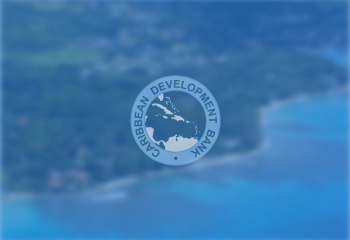Gates Foundation, Open Society Foundations, and The Rockefeller Foundation Announce New Recipients of Multilateral Development Banks Challenge Fund

Ahead of the New Financial Pact Summit, chaired by Emmanuel Macron, President of the French Republic, and Narendra Modi, Prime Minister of India, the Bill & Melinda Gates Foundation, Open Society Foundations, and The Rockefeller Foundation announced USD 2,781,583 in funding from the $5.25 million Multilateral Development Banks Challenge Fund (“the Fund”): Albert Ludwig University of Freiburg, Caribbean Development Bank, FSD Africa, IDB Invest, Risk Control Limited, and University of Leeds. The six grantees, which were selected to help increase efficiency and innovation in the world’s development finance system, advance the Fund’s overarching goal of accelerating investment for the United Nations’ Sustainable Development Goals (SDGs) and Paris Climate Agreement.
The Fund, which is administered by New Venture Fund, was announced in October 2022 to help multilateral development banks’ (MDBs) unlock tens of billions of dollars in new development finance with little to no cost to shareholders and while safeguarding their financial integrity. Aligning assistance around the recommendations in the G20 Independent Review of MDBs’ Capital Adequacy Framework (CAF) report, its three areas of focus are 1) developing a better understanding of MDBs’ specific features to support better informed discussions about MDB’s risk management and shareholders’ risk appetite; 2) promoting financial innovation and the development of new instruments, with an emphasis on risk transfers and securitization as a means to catalyze private investment; and 3) improving transparency and access to information.
The latest round of projects will help accelerate the design and implementation of new ideas for MDB innovation and finance research to promote ways in which MDB’s unique resources can be maximized. With grants ranging from $140,000 to $750,000:
- Albert Ludwig University of Freiburg, a public research university located in Freiburg in Breisgau, Baden-Württemberg, Germany, will develop a new methodology for assessing concentration risk tailored to MDBs’ portfolio. This aims to provide an alternative to the leading methodology currently in use (e.g. in S&P supranational ratings), which was designed for commercial entities, usually holding much larger portfolios, and can be considered overly conservative when applied to MDBs portfolios that are structurally concentrated but also have other specific features.
- Caribbean Development Bank (CBD), a regional financial institution, will explore new balance sheet solutions that would enable it to better cushion disaster-related shocks and to provide financing tailored to its members’ needs and challenges. The work on Climate Resilient Debt Instruments has to date predominantly focused on private sector creditors. This project will build the evidence base for consideration of the introduction of climate-contingent loans into MDBs’ activities, accounting for MDB specific features and considering what additional support may be required to enable the implementation of such mechanisms at scale. A holistic balance sheet approach will consider innovation on both sides of the balance sheet, developing a framework replicable by other development banks. Lazard Frères has been retained as financial advisor to CDB to implement this project.
- FSD Africa, which is incorporated as a non-profit company limited by guarantee in Kenya and funded by the UK Government’s UK aid, will explore the potential for local currency solutions for MDB portfolio transfers, combining the objective of freeing up MDB capital with that of deepening domestic capital markets in smaller emerging markets.
- IDB Invest, which is the private sector arm of the Inter-American Development Bank (IDB) Group, will structure a securitization of a pool of its development related assets as a means of testing appetite and optimizing capital. The preparatory work will be designed with an eye towards building a new asset class and expanding and scaling the MDB investor base and by exploring options for greater standardization and collaboration between MDBs.
- Risk Control Limited, a UK-based firm specializing in developing and implementing risk management assessments for international institutions, will launch two projects. The first project will produce comprehensive analysis to support MDB’s efforts to develop markets in their own risk transfer mechanisms, creating a set technical and analytical tools for Balance Sheet Optimization. The second project will aim to benchmark capital adequacy across MDBs to increase transparency for their shareholders, boards, and management, while providing metrics of credit standing that are alternatives to agency ratings.
- University of Leeds, a public research university in Leeds, West Yorkshire, England, will be investigating MDBs local currency practices, evaluating the scale of the risks and their determinants, and assessing current risk management frameworks, while testing whether the premise that these risks are currently overestimated by limiting the lending capacity of MDBs.
The six new grantees join the first recipients of funding, ODI and Publish What You Fund, which are working to rapidly develop research to improve understanding of MDBs’ callable capital and a system to track and boost MDB mobilization.
“The MDB Challenge Fund is designed to jump start MDB reforms. These grants should help financial institutions test methods to meaningfully increase their funding and impact, to enable MDBS’s to better confront the crises facing the world – especially climate change, energy, the food crises and debt,” said Mike Muldoon, Chief of Staff at The Rockefeller Foundation and former member of the independent panel commission by the G20 to conduct the Review of MDBs’ Capital Adequacy Frameworks.
“This grant is part of the Bank’s thrust to arrive at innovative solutions for development. Access and affordable financing is the key to resilient prosperity in our region,” said Dr. Hyginus “Gene” Leon, President of the Caribbean Development Bank.
“As political momentum around MDBs reforms continues to grow, the pool of projects supported by the MDB Challenge Fund will contribute to identifying innovative and concrete solutions to design development finance instruments that match the pressing liquidity needs of developing countries and help them implement a just and equitable energy transition,” said Laura Carvalho, Global Director of Equity at OSF.
“Meeting the development finance needs of today and tomorrow requires effective, collaborative, and innovative multilateral development banks, truly operating as part of a responsive system rather than as standalone, static actors. The MDB Challenge Fund is investing in this vision by seeding projects that fill key knowledge gaps and demonstrate deepened MDB capacity, collaboration, and impact,” said Kalpana Kochhar, Director of Development Policy and Finance at the Bill & Melinda Gates Foundation.
“FSD Africa is pleased to be selected among the beneficiaries of the MDB Challenge Fund. We have been at the forefront of innovation and are keen on supporting new ways of doing business to ensure finance works for Africa’s future. Leveraging on the grant FSD Africa intends to undertake detailed assessment and engagement with MDBs and other key stakeholders to curate an innovative approach to unlock MDB capital in a way that enhances efficiency, maximises impact and supports sustainable economic development in Africa,” said Mark Napier, CEO, FSD Africa.
“MDB loan portfolios typically consist of a small number of borrowers and hence are exposed to a significant amount of single name concentration risk. The granularity adjustment method currently applied by some rating agencies can, however, substantially overestimate this risk when applied to such small portfolios. In this project, we will develop a new approach that accurately measures name concentration risk in small and highly concentrated portfolios. A more precise measurement of concentration risk may lead to a significant reduction of capital requirements and hence increased lending capacity for MDBs,” said Professor Luetkebohmert-Holtz of the University of Freiburg.

